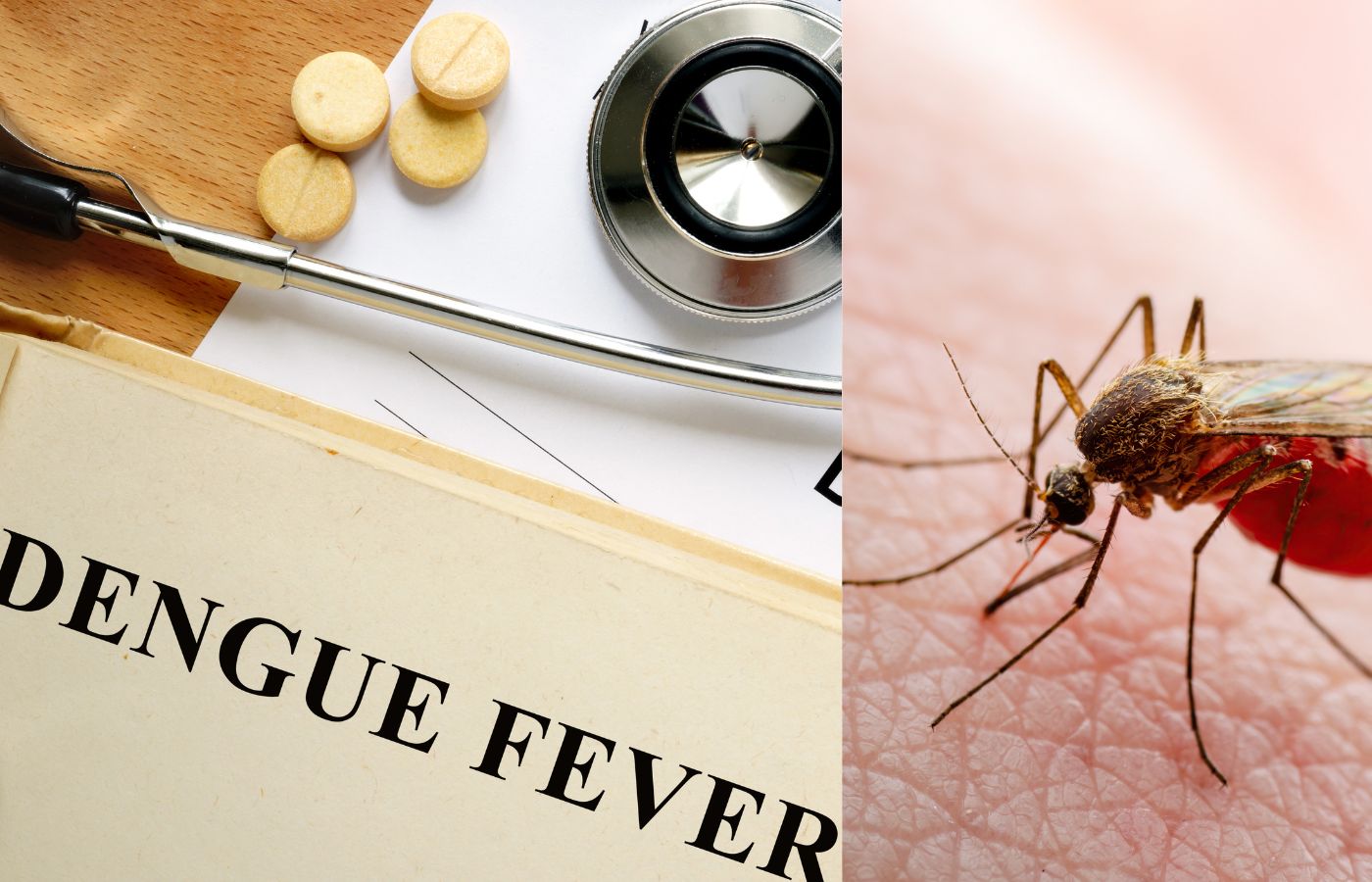Early detection through a dengue virus test is crucial to avoid complications. In this blog, we will discuss dengue symptoms, diagnosis, treatment, and prevention to help you stay informed and protected.
Dengue Fever: Symptoms, Diagnosis, Treatment, and Prevention
How is Dengue Diagnosed and Treated? Can Dengue Be Prevented?
Dengue fever is a viral infection caused by the dengue virus, which is transmitted by the dengue mosquito (Aedes aegypti and Aedes albopictus). This mosquito-borne dengue disease is prevalent in tropical and subtropical regions, including India. Dengue and fever often go hand in hand, and the severity can range from mild to life-threatening. Early detection through a dengue virus test is crucial to avoid complications. In this blog, we will discuss dengue symptoms, diagnosis, treatment, and prevention to help you stay informed and protected.
What Are Dengue Symptoms?
Dengue symptoms can vary in severity and typically appear 4 to 10 days after the mosquito bite. Here is a breakdown of dengue symptoms day by day:
Day 1-2:
- Sudden high fever (up to 104°F)
- Severe headache
- Pain behind the eyes
- Body aches and joint pain (often called "breakbone fever")
Day 3-5:
- Skin rashes
- Nausea and vomiting
- Loss of appetite
- Mild bleeding (nosebleeds or gum bleeding)
Day 6-10:
- Symptoms may either improve or worsen.
- Severe cases can lead to Dengue Hemorrhagic Fever (DHF) or Dengue Shock Syndrome (DSS), which involve:
- Severe abdominal pain
- Persistent vomiting
- Difficulty breathing
- Internal bleeding and organ damage
Dengue Diagnosis: How Is Dengue Detected?
If you experience dengue symptoms , visiting a pathology lab for a dengue virus test is essential. Several dengue fever test names are commonly used for diagnosis:
- NS1 Antigen Test – Detects dengue virus proteins in the early stages.
- Dengue IgM and IgG Antibody Test – Identifies antibodies produced by the immune system.
- Complete Blood Count (CBC) – Checks platelet levels, which often drop in dengue.
- Polymerase Chain Reaction (PCR) Test – Confirms dengue virus presence in the blood.
Treatment of Dengue Fever
Currently, there is no specific antiviral treatment for dengue. Management of the disease focuses on symptom relief and supportive care:
- Hydration: Drink plenty of fluids to prevent dehydration.
- Pain Relief: Paracetamol (acetaminophen) is recommended for fever and body pain. Avoid aspirin or ibuprofen, as they can increase bleeding risk.
- Rest: Adequate rest is crucial to recovery.
- Hospitalization: Severe dengue cases may require hospitalization for IV fluids, oxygen therapy, and close monitoring.
Can Dengue Be Prevented?
Yes, dengue prevention is possible by taking proactive steps to control mosquito breeding and protect against bites. Here are some essential measures:
1. Prevent Mosquito Breeding
- Eliminate stagnant water – Mosquitoes breed in standing water, so regularly empty water containers, flower pots, and coolers.
- Use mosquito larvicides – Adding mosquito larvicides to water storage areas can prevent larvae from developing.
- Maintain hygiene – Keep surroundings clean and ensure proper drainage.
2. Protect Yourself from Mosquito Bites
- Use mosquito repellents – Apply insect repellents containing DEET, picaridin, or citronella.
- Wear protective clothing – Long-sleeved shirts and full-length pants reduce mosquito exposure.
- Use mosquito nets and screens – Sleeping under a mosquito net or in a screened room reduces the risk of bites.
3. Community Awareness and Government Initiatives
- Fogging and spraying – Local authorities conduct mosquito control measures in dengue-prone areas.
- Public awareness campaigns – Spreading awareness about dengue symptoms and dengue prevention helps in early detection and control.
- Vaccination – Some countries have approved dengue vaccines, but they are not widely available yet.
Conclusion
Dengue fever is a serious but preventable disease. Early diagnosis through pathology labs and dengue virus tests can help manage the condition effectively. While there is no specific cure, supportive treatment and proper care can ensure a smooth recovery. Dengue prevention is crucial in reducing the spread of the disease, and taking personal and community-wide precautions can help protect individuals from the dengue mosquito. Stay informed, stay safe, and follow preventive measures to keep dengue disease at bay!
If you experience any dengue symptoms, visit a healthcare provider and get tested immediately. Timely action can make all the difference!
